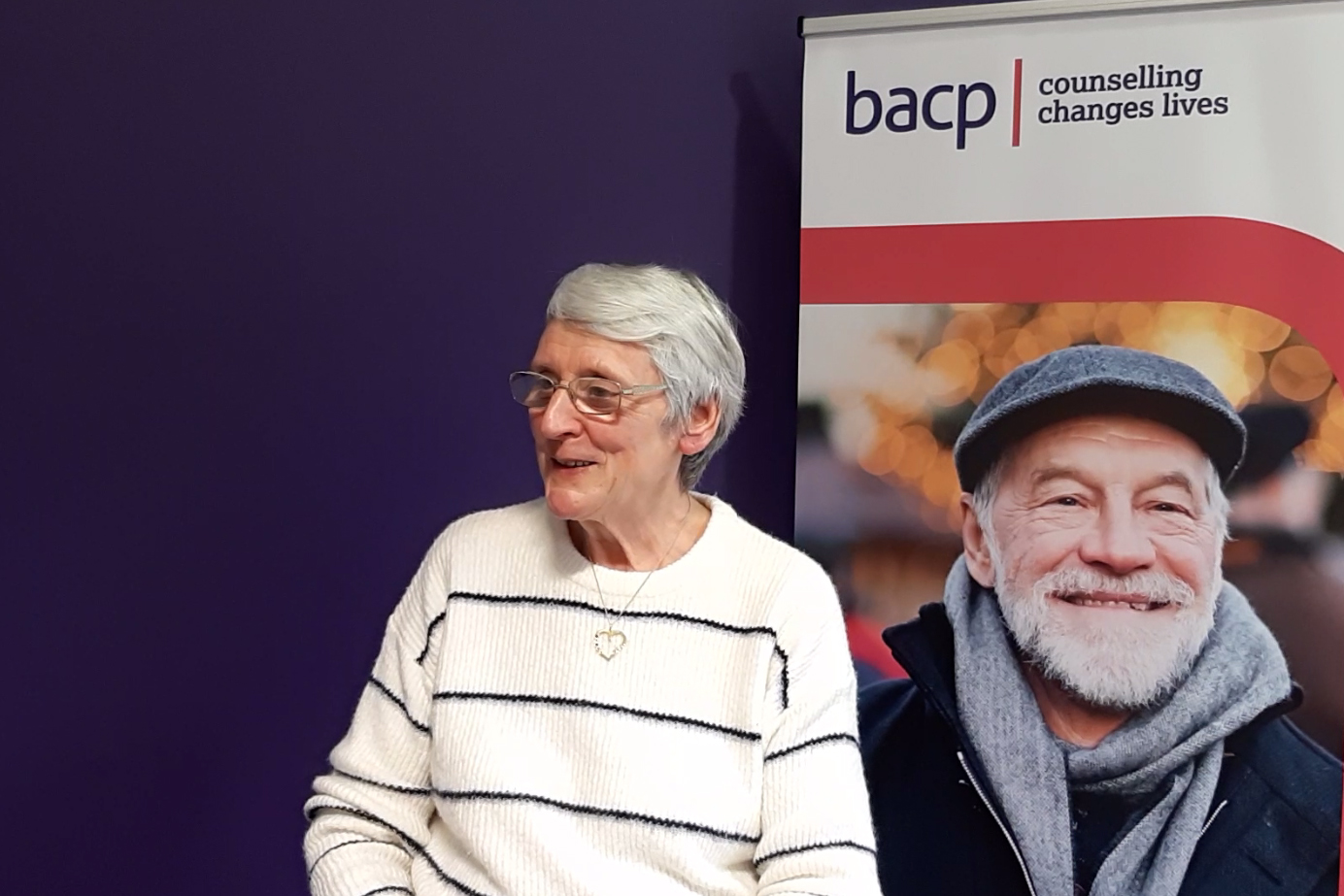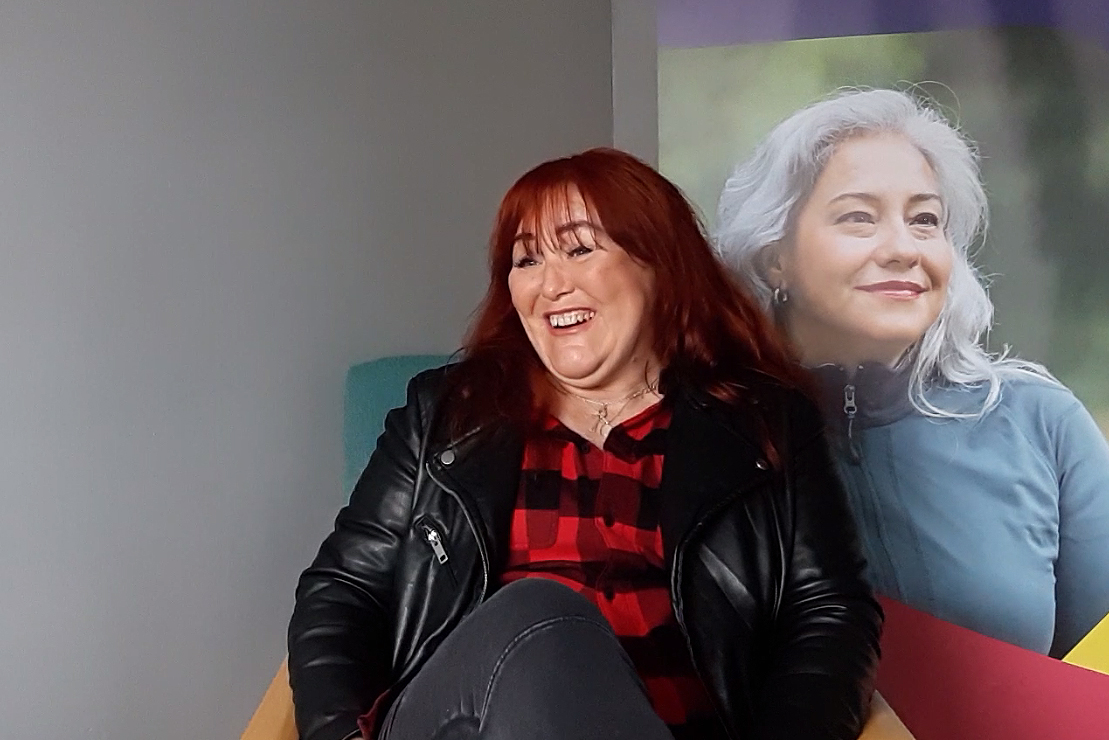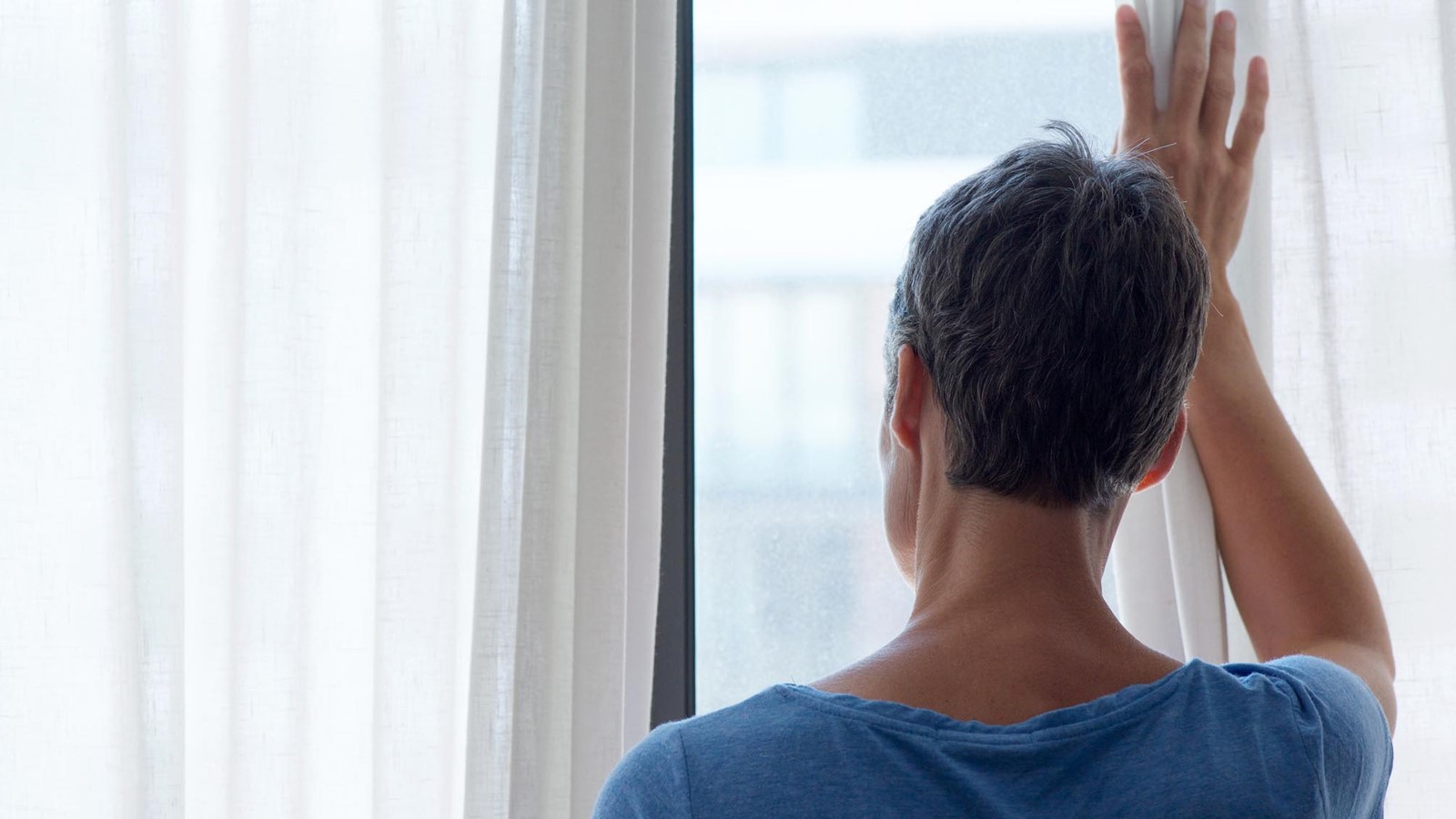When Pamela’s* teenage grandson Sam* was found guilty of a crime and sentenced to two years in a young offenders’ prison, her world turned upside down.
“To have a loved one taken away from you when they have been given a jail sentence, is a very traumatic experience, one which becomes a sentence for you as well as them,” she explains.
“It leaves you empty and hollow and is very hard to take. I felt anger and frustration, and I felt denial: how could this happen to someone like my grandson when there were ‘real’ criminals out there?
“Your life changes dramatically when you are faced with this sort of situation. On the one hand, you continue your life at home with all the familiarity that it brings, and on the other hand, you are thrust into what I call the ‘prison bubble’, which, with time, brings a different type of familiarity. You get up early and travel for miles so that you can put your arms around someone you love dearly and miss so much. For the few seconds it takes to have a cuddle, you are oblivious to the surroundings, but all too soon, you are brought back to reality.”
The trauma and shock, she says, were particularly raw when her grandson was sentenced.
State of disbelief
“I have shared a very close relationship with Sam since the day he was born. Having to leave court without him was indescribable. I can’t remember much about the journey home – we were almost in a state of disbelief at what we were experiencing and would have to endure for another two years. We felt totally numb; similar to how I imagine one must feel when experiencing news of a sudden death.”
Worry became a new normality for Pamela and her family.
“We could never feel really relaxed and confident until the day he was back home with us. When you have a loved one in prison, you experience a mixture of emotions, from devastation to elation, with a lot in between. They are in your thoughts from morning till night, but the nights were always the worst to face. A soon as my head hit the pillow, Sam was on my mind. Most nights for several months, I would relive the trauma of it all and cry myself to sleep. You worry constantly that your boy could be in danger at the drop of a hat.
Contact with Sam was precious and helped keep Pamela and her family going.
“It was always lovely to hear his voice over the phone, and this gave us strength to get though the week until our next visit. I also used the prison email system to email him. I very often embraced this when I had had a bad day and wanted to feel closer to my grandson. Although Sam couldn’t reply, just a page of text seemed to unburden me, and I could go about my day in a happier frame of mind once I had sent it.”
Counsellor helped me be more positive
Pamela sought counselling, which she says helped her to cope with the trauma, shock and anxiety.
“My counsellor helped me to be more positive. She listened to me each session, let me cry unashamedly, and offered good advice.
“One suggestion she gave me was to write a letter or several letters to the people concerned in the situation. She told me not to hold back, to go in all guns blazing – even swearing was permitted – and then to read through what I had written when I felt able to. But I must never, never, send the letters. When I had said all I wanted to say, I could destroy the letters – burn them, shred them, tear them up, whichever I preferred. I did this, and after a time, I felt sure it did help. My anger grew less, and I learnt to accept the situation as best I could.
“It was while discussing the situation with my counsellor one day that I realised there were others seeking the same sort of advice as me (no details were of course discussed). That prompted me to share my experience. If reading about my dilemma and subsequent happy ending can help others, then I am satisfied.”
Pamela says she was fortunate to have the support of a loving, close family, but admits events put a strain on family life.
Knowing what to say to friends, too, was awkward, she acknowledges.
Ultimately, the day of Sam’s release did come, something Pamela describes as ‘sheer joy’.
“My husband and I were waiting at home and when he walked through the door, we hugged him like never before,” she recalls.
Counselling was an important part of Pamela’s coping mechanisms, and she stresses how vital she found reaching out in general to be.
No shame in seeking help
“When faced with any trauma, we have to deal with it in our own way. But do not try to cope alone.
“There is no shame in seeking help, and with that help will come comfort, and hopefully confidence. Fortunately, I was able to pay for counselling sessions, but I believe that if money poses a problem, advice from a counsellor can be sought via your local GP. Maybe this takes longer to come into effect, but it is worth a try. Please do seek help. Always accept whatever help is offered, never lose faith or hope and you will realise that good times can come from bad. Like our family, your “prison bubble” will burst.”
A counsellor's view
Sarah,* a counsellor who works with many people who find themselves in a similar situation to Pamela, regularly sees the emotional impact that imprisonment of a loved one can have on family members.
“It’s very complex; it can include shock, disbelief, helplessness, shame, anger, frustration, judgement, retribution, a sense of justice, righteousness, sorrow… there is a real mixture of emotions all through the process. There may be a very strong sense of this being unreal, that it will be a nightmare they can wake up from, if only they can shake themselves hard enough. But it also needs to be remembered that the family may be glad that the person involved is in prison and feel that they 'deserve' the punishment of being in jail. The consequences can be many, including families falling out, cutting off the individual who is in jail, couples not coping with the process… it is very emotive for all involved, and the family may sometimes effectively serve a 'sentence' alongside that of their family member.”
Whenever a family member of someone in prison comes to counselling, the process must be individualised, since everyone’s circumstances are different, she says.
“It’s important to understand how the client feels about the person and the crime that has been committed: do they want to keep in touch with them? Are they going to visit? Do they think they “deserve” their time in jail? Can they afford to visit? Has the family fallen apart over this? What has been the reaction of extended family members or neighbours? Does their employer know about it? Is their job safe? They may be forced to move from their home.
Space for individual to feel safe
“The counselling session is a space for the individual to feel safe, to have a secure base to explore and manage the conflicting emotions of the 'storm' that is happening around them, to be listened to (without judgment), to gain understanding of their emotions, to facilitate self-care and understanding of themselves and their world, and to move forward with courage.
"Prison sentences are 'value' based – how many times have you heard, 'they deserve it' or 'they got what they deserve'? And of course, the client may feel this too; so it is important to separate out the action and the emotion. It may be that the client can hold in their hearts, 'I don’t agree with what you have done, but I still love you', but they may feel under pressure not to feel this way when they hear from others, 'how can you love them when they did that?'.
“It is the client’s experience that is important: what do they feel about the prison sentence? What do they feel about their family member inside prison? How do they enable themselves to stand with their view of this situation against the actions of others?
“The important thing is that the counsellor stays with the client; it is their experience. The judicial system is free from emotion in its decision-making process; the client’s experience of it is not.”
*All names and identifying details have been changed to protect anonymity
To find a BACP counsellor or psychotherapist near you, visit our Therapist directory.

What therapy can help with
An A-Z list of issues and concerns which may be helped by talking to a counsellor.

Counselling changing lives in Glasgow
Hear how Lifelink is making a difference to people in Scotland, including 61-year-old Rose Mulloy

"Counselling has completely changed my outlook"
Hear Michelle Fletcher's story about how counselling helped her to deal with a series of life events
